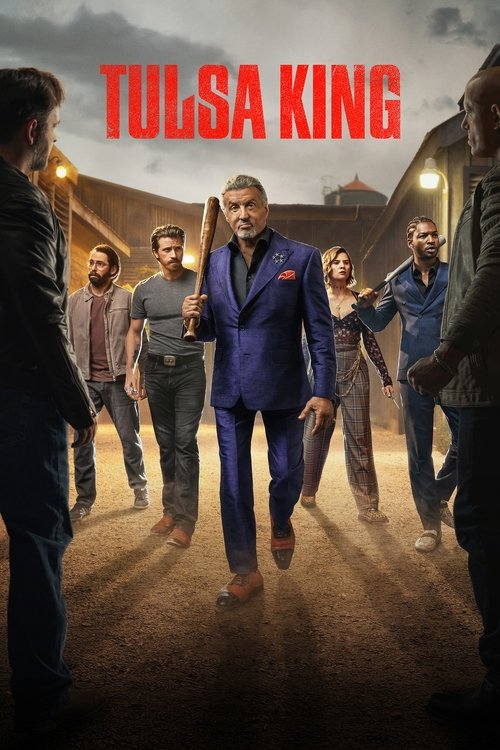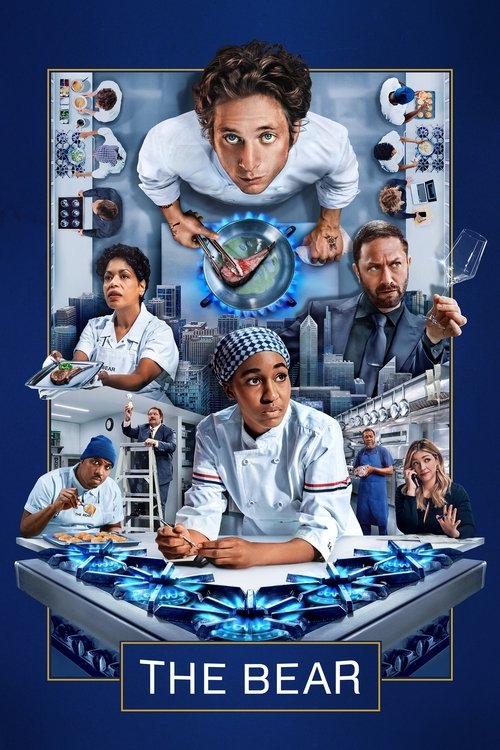
Ask Your Own Question
What is the plot?
The episode begins with River Cartwright, a member of the Slough House team, feeling the weight of his recent failures. He is haunted by the memory of his botched training exercise, which led to his demotion to the Slough House, a place for disgraced MI5 agents. River is determined to prove himself and regain his standing within the agency. He is particularly focused on the case involving a kidnapped British citizen, which has become a priority for the team.
As the Slough House team gathers for a briefing, they are informed about the ongoing situation with the hostage. The team, led by the cynical and jaded Jackson Lamb, is tasked with monitoring the situation from the sidelines. River, however, is restless and feels that they should be more proactive in their approach. He expresses his frustration to his colleagues, who are more resigned to their fate in Slough House. Lamb, dismissive of River's enthusiasm, emphasizes the importance of staying out of trouble.
Meanwhile, the kidnappers are shown in a separate scene, revealing their motivations and the pressure they are under. They are ruthless and determined, and their leader is particularly volatile. The tension builds as they prepare to make a demand for the hostage's release, which adds urgency to the Slough House team's situation.
River decides to take matters into his own hands. He secretly investigates the kidnapping case, using his own resources to gather information. He discovers a potential lead that could help locate the hostage. This decision is driven by his desire to prove himself and to show that he is still capable of being a valuable asset to MI5, despite his current status.
As River delves deeper into the investigation, he encounters various obstacles. He faces pushback from his colleagues, who are wary of his reckless behavior. However, he remains undeterred and continues to pursue the lead. His determination is fueled by a mix of desperation and ambition, as he seeks to redeem himself in the eyes of his superiors.
In a pivotal moment, River's investigation leads him to a confrontation with a key informant. This encounter is tense and fraught with danger, as River must navigate the precarious situation without alerting the kidnappers. He manages to extract crucial information about the location of the hostage, but not without risking his own safety. The informant's fear of the kidnappers adds to the urgency of the situation, highlighting the stakes involved.
Back at Slough House, Lamb becomes aware of River's unauthorized actions. He is initially furious but recognizes that River may have stumbled upon something significant. Lamb reluctantly decides to support River's efforts, albeit with a begrudging acknowledgment of the risks involved. This shift in Lamb's attitude marks a turning point in the episode, as the team begins to rally around River's lead.
As the episode progresses, the Slough House team mobilizes to act on the information River has gathered. They coordinate a plan to rescue the hostage, which involves a series of tense and strategic maneuvers. Each team member plays a role, showcasing their unique skills and highlighting the dynamics within the group. The atmosphere is charged with a mix of anxiety and determination as they prepare for the operation.
The climax of the episode occurs during the rescue attempt. The team executes their plan with precision, but things quickly spiral out of control. A confrontation with the kidnappers ensues, leading to a chaotic and dangerous standoff. River's quick thinking and resourcefulness come into play as he navigates the unfolding crisis, trying to ensure the safety of the hostage while also protecting his team.
In the aftermath of the rescue, the team reflects on the events that transpired. There are moments of relief and camaraderie, but also a sense of lingering tension as they process the risks they took. River's actions have garnered him some respect from his colleagues, but the reality of their situation in Slough House remains unchanged. The episode concludes with a sense of unresolved tension, setting the stage for future developments in the series.
What is the ending?
In the ending of "Bad Tradecraft," the episode culminates in a tense confrontation where the Slow Horses, led by River Cartwright, manage to rescue the kidnapped operative, but not without significant personal and professional costs. The episode closes with a sense of unresolved tension as the characters grapple with their failures and the implications of their actions.
As the episode unfolds, we find ourselves in a dimly lit warehouse where the Slow Horses have tracked down the location of the kidnapped operative, who is being held captive. River Cartwright, driven by a mix of determination and desperation, leads the charge. His internal conflict is palpable; he is eager to prove himself after being relegated to the Slow Horses, a group of disgraced spies.
The scene shifts to the captors, who are on high alert, unaware of the impending rescue. The atmosphere is thick with suspense as River and his team, including the ever-cynical Jackson Lamb, prepare for the operation. Lamb, with his gruff demeanor, provides a stark contrast to River's youthful eagerness. He is aware of the stakes and the potential for disaster, yet he pushes the team forward, embodying a reluctant mentor role.
As they infiltrate the warehouse, the tension escalates. The Slow Horses move stealthily, their hearts racing as they navigate through the shadows. River's focus is unwavering, but flashes of doubt creep in as he recalls his past failures. The emotional weight of his previous mistakes fuels his determination to succeed this time.
The rescue operation reaches a critical moment when they finally locate the captive operative. However, the situation quickly spirals out of control. A firefight erupts, and chaos ensues. River's instincts kick in, and he fights valiantly, but the stakes are high, and the danger is palpable. The camera captures the frantic movements, the sound of gunfire echoing, and the fear etched on the characters' faces.
In the midst of the chaos, River manages to reach the operative, but not without sustaining injuries. The emotional turmoil is evident as he grapples with the reality of the situation--he has saved a life, but at what cost? The team regroups, but the aftermath of the confrontation leaves them shaken.
As the dust settles, the characters are left to confront the consequences of their actions. River, though a hero in this moment, is haunted by the realization that the world of espionage is fraught with moral ambiguity. Jackson Lamb, while proud of the team's efforts, recognizes the fragility of their success and the looming threats that still exist.
The episode concludes with a somber tone, as the Slow Horses return to their base, each character reflecting on their experiences. River's journey is far from over; he has taken a step towards redemption, but the path ahead remains uncertain. The emotional weight of their mission lingers, setting the stage for future conflicts and character development. The fate of each character is intertwined with the choices they have made, leaving viewers with a sense of anticipation for what lies ahead.
Is there a post-credit scene?
In "Bad Tradecraft," the third episode of "Slow Horses," there is no post-credit scene. The episode concludes without any additional scenes or content after the credits roll. The focus remains on the main narrative and character developments throughout the episode, wrapping up the storylines presented without extending into a post-credit moment.
What specific mistakes does River Cartwright make during the surveillance operation in this episode?
In this episode, River Cartwright makes several critical mistakes during the surveillance operation. He becomes overly focused on the target, failing to maintain proper situational awareness. His eagerness leads him to disregard the established protocols, which ultimately puts the entire operation at risk.
How does Jackson Lamb react to River's mistakes in the field?
Jackson Lamb reacts with frustration and disdain to River's mistakes. He berates River for his lack of discipline and for jeopardizing the mission. Lamb's harsh criticism reflects his tough-love approach to leadership, as he believes that River needs to learn from his errors to grow as an agent.
What role does the character Min Harper play in the events of this episode?
Min Harper plays a crucial role in this episode as he attempts to support River Cartwright during the surveillance operation. He tries to provide guidance and advice, but also faces his own challenges as he navigates the complexities of the mission. Min's character showcases the camaraderie and tension within the team.
What is the significance of the 'bad tradecraft' theme in this episode?
The 'bad tradecraft' theme is significant as it highlights the consequences of poor decision-making and lack of experience among the agents. The episode illustrates how these mistakes can lead to dangerous situations, emphasizing the importance of discipline and adherence to protocol in intelligence work.
How does the episode explore the dynamics between the Slow Horses team members?
The episode explores the dynamics between the Slow Horses team members through their interactions during the surveillance operation. Tensions rise as they confront each other's weaknesses and mistakes, revealing underlying rivalries and the struggle for respect within the group. This exploration adds depth to their relationships and character development.
Is this family friendly?
"Slow Horses," Season 1, Episode 3 titled "Bad Tradecraft," contains several elements that may not be suitable for children or sensitive viewers. Here are some potentially objectionable aspects:
-
Violence: The episode includes scenes of physical confrontations and the aftermath of violent incidents, which may be distressing.
-
Language: There is the use of strong language throughout the episode, which may not be appropriate for younger audiences.
-
Tension and Suspense: The narrative builds a sense of tension and suspense that could be unsettling for sensitive viewers, particularly in scenes involving danger or betrayal.
-
Themes of Betrayal and Deception: The plot explores darker themes such as betrayal and the moral complexities of espionage, which may be difficult for younger viewers to understand.
-
Emotional Strain: Characters experience significant emotional turmoil, including feelings of inadequacy and frustration, which may resonate deeply and be upsetting for some.
These elements contribute to a tone that is more suited for mature audiences.



























